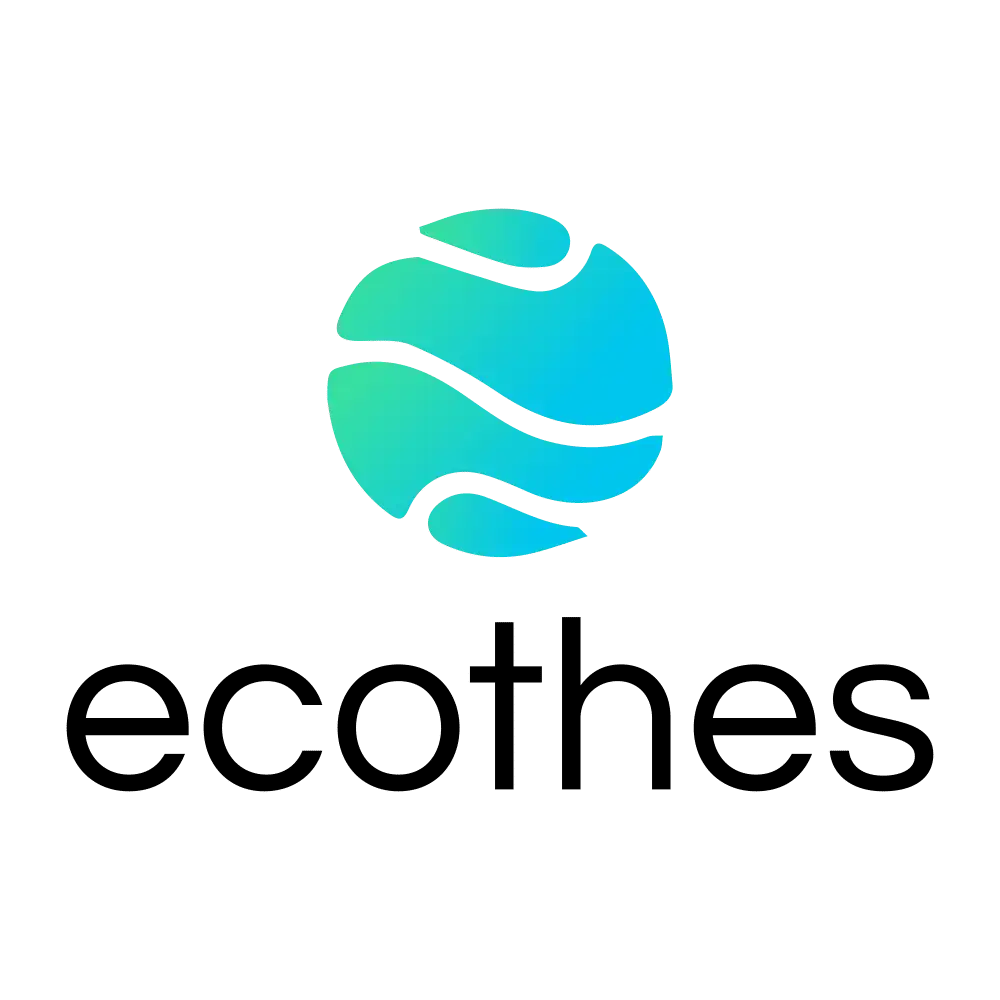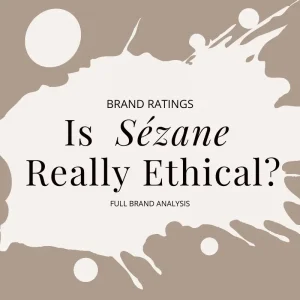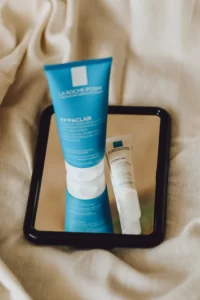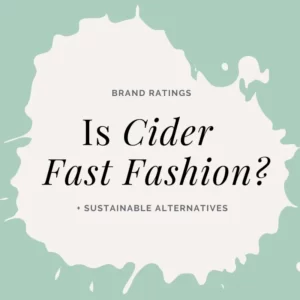We’re reader-supported. The following post contains affiliate links. If you click through a link and make a purchase, we may receive a commission. We only partner with brands who share the same values as we do.
Free People is a women’s clothing brand, focused on creating Bohemian-inspired women’s clothing and shoes.
Free People is owned by fashion retail giant URBN, which umbrellas a portfolio of other consumer brands, including Urban Outfitters, Anthropologie, and Free People.
In this article, we will discuss the question is free people ethical? We will provide details, insight, and sustainable alternatives to the brand.
Let’s jump in.
Is Free People Sustainable? Ecothes Opinion
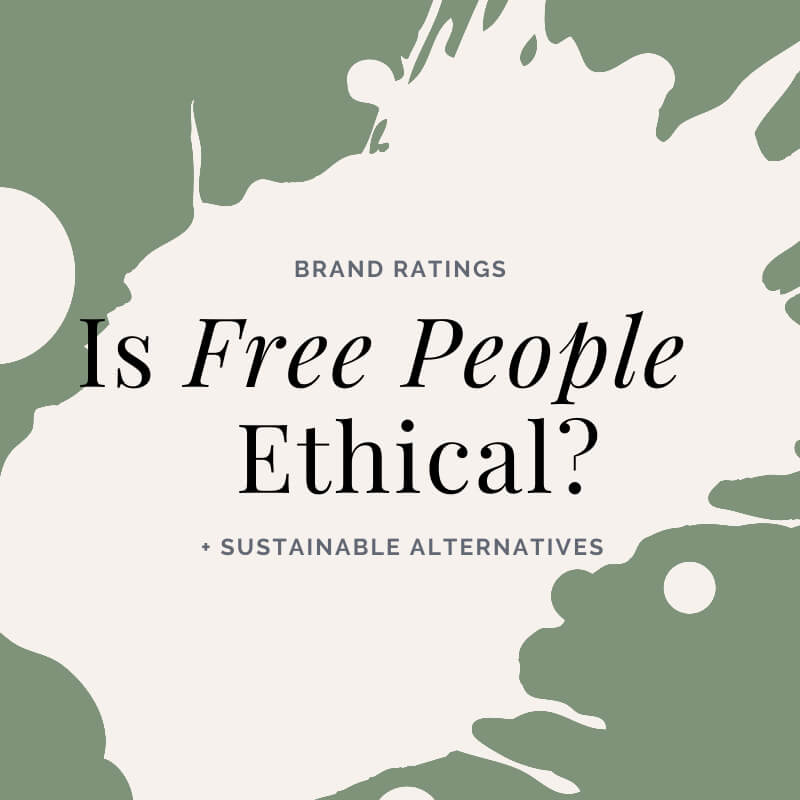
The brand also mass produces large amounts of fast fashion, by constantly producing rapidly changing styles. Fast fashion brands have a negative environmental impact; as 25% of fast fashion garments remain unsold, and less than 1% of products are recycled into garments causing huge quantities of fashion waste to end up in landfills.
Read the full article to discover why we’ve chosen this score, and see ethical alternatives to free people.
What Materials Does Free People Use?
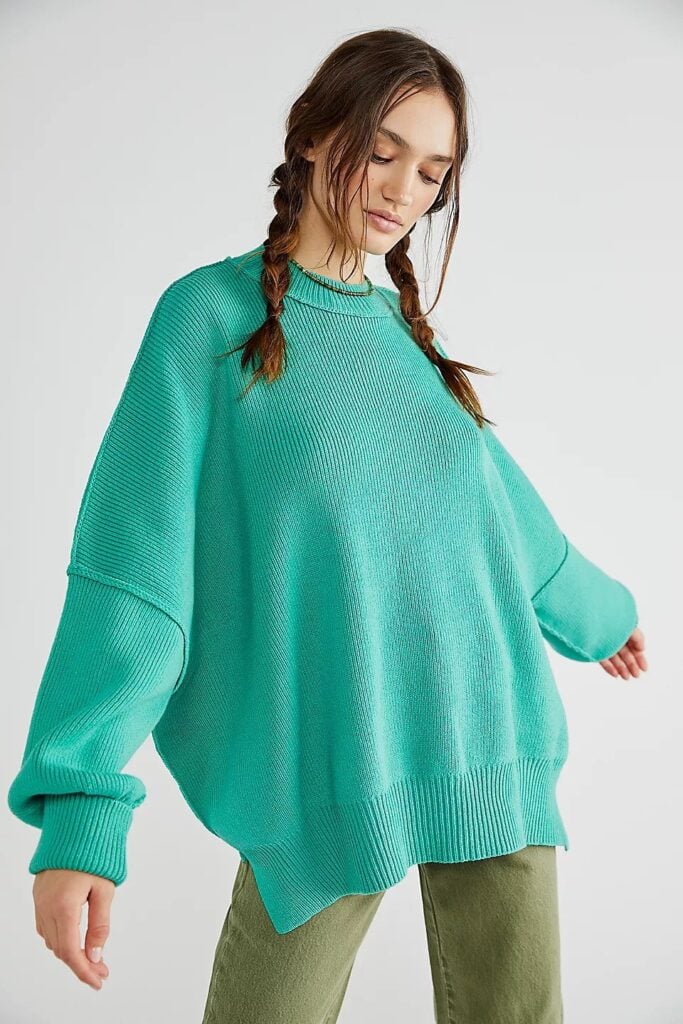
The majority of garments created by Free People are made from the following materials:
While we found a handful of products on their website containing small amounts of more eco-friendly alternative materials like Tencel, Organic Cotton, and Recycled Polyester, these garments were a tiny percentage of the brand’s line.
Their parent company URBN says that 79% of their direct-sourced viscose from responsible and sustainable sources such as Lenzing and recycled options; however, this isn’t enough and we’d like to see them prioritize lower-impact materials and bring more recycled materials into further collections.
Free People’s parent are taking steps to reduce its plastic packaging and have eliminated their gift box program and substituted it with tissue wrap that is 100% recyclable. In addition, shopping bags are now made of 100% cotton, which is 100% biodegradable and reusable.
Although this is a step in the right direction, there is a lack of sustainable materials used to create its collections.
Does Free People Use Sweatshops and Unethical Labour?
Free People publish a Modern Slavery Act (Transparency in Supply Chains) Statement, which details that Urban Outfitters Inc. and affiliated companies (Free People) are committed to conducting business lawfully and responsibly. The statement available to read on their website also details that they will only partner with suppliers that ensure they don’t use any child or forced labor and must comply with health and safety laws.
They then specify that Tier 1 and Tier 2 suppliers are scrutinized on their code of conduct policies before being accepted. They are then subject to internal and external audits to ensure the specified criteria are being met. However, there is no further information about which factories or suppliers Free People are directly partnering with, and there is a lack of transparency around the outcomes of these audits.
Furthermore, the Year Three Modern Slavery Act Statement, published on the Free Peoples website, is currently 12 months out of date and expired in 2020 (at the time of publishing this article).
In addition, Free People were given a 0 out of 10 score for brand traceability and only achieved 16% overall in the Fashion Transparency Index 2021 review. This in-depth review takes a deep dive into the top 250 most prominent fashion brands and ranks them based on factors including supplier transparency, supply chain policies, and environmental impact.
Where are Free Peoples Clothes Made?
Although the Free People brand gives no direct information on their website, their parent company URBN publishes the list of Tier 1 and Tier 2 suppliers it uses across its whole supply chain.
The factories they partner with are primarily based in China, Vietnam, and India. However, no further information about the company and the working conditions of its garment workers are not shared. You can review and download the whole list of URBN suppliers here.
Is Free People Vegan?
Although many styles in the Free Peoples range include vegan leather and other vegan products, the brand uses animal products such as leather, wool, and other animal-derived materials in its collections.
In addition, Free People don’t disclose any information about whether they use responsible leather or wool, or whether their leather has been certified by the leather working group LWG.
Sustainable and Ethical Alternatives to Free People
1. Christy Dawn
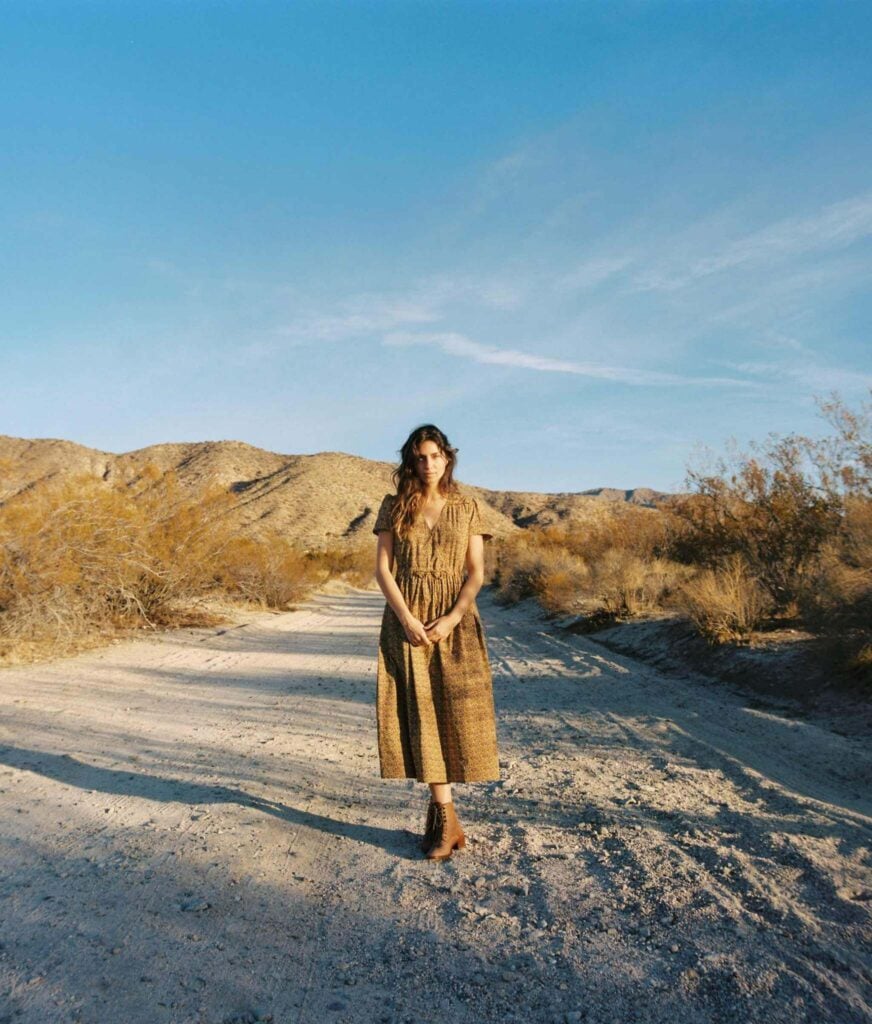
What they make: Chic, boho-inspired flowy dresses, sweaters, and blouses.
Sustainability: Ethical and sustainable dresses made from deadstock fabrics, organic, and regenerative cotton.
Christy Dawn is a unique ethical clothing brand creating beautiful pieces from organic materials.
They create their clothes from consciously selected organic and regenerative cotton and work with skilled dressmakers in Los Angeles and India.
The Christy Dawn farm-to-closet initiative works to create a regenerative cotton farming model. This model helps heal the earth and ensures that the farmers, spinners, weavers, and dyers who produce Christy Dawn’s clothes are paid a living wage, have access to healthcare, and are given opportunities for growth and education.
If you’re looking for gorgeous bohemian-style dresses, choose Christy Dawn instead.
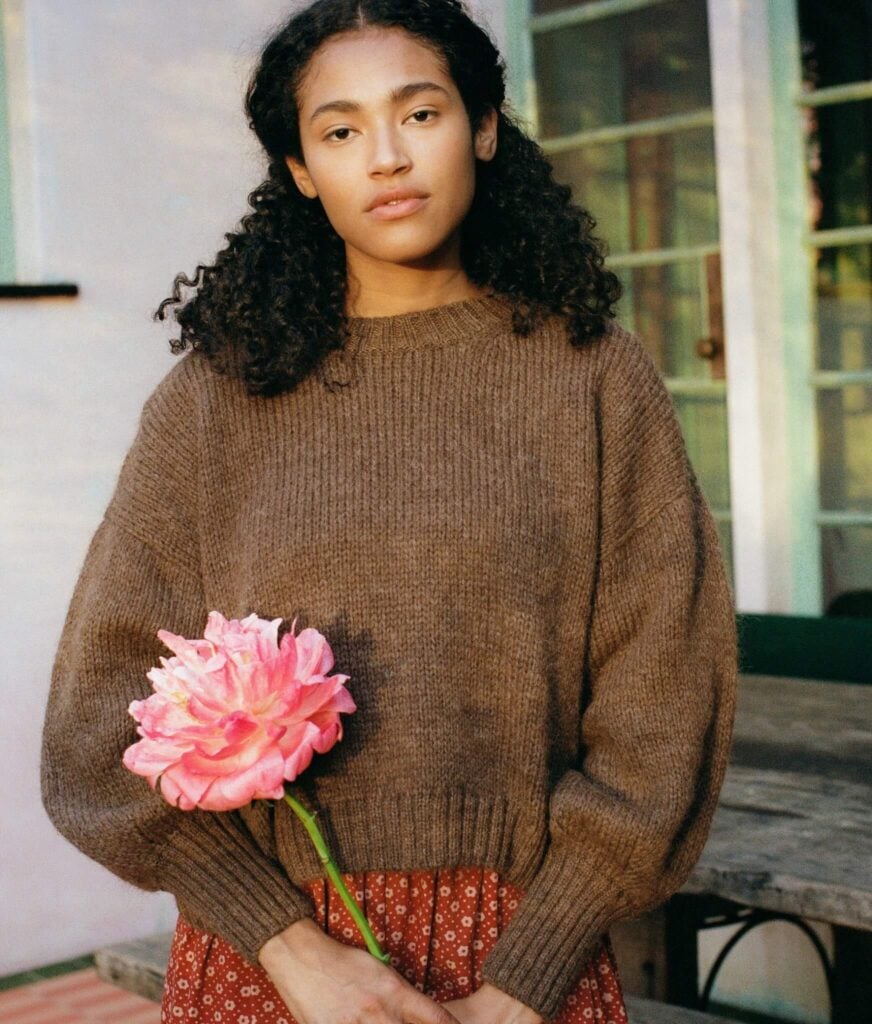
2. Whimsy + Row
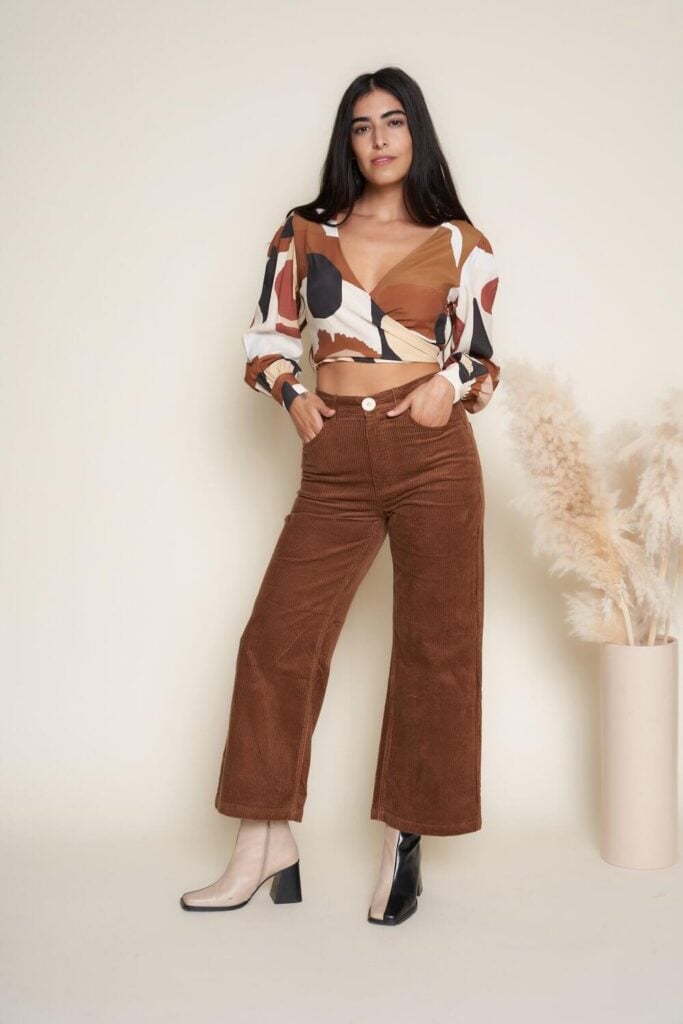
What they make: Gorgeously chic dresses and occasion wear.
Sustainability: Recycled fabrics, Organic cotton, recyclable and recycled packaging, and ethical production.
Whimsy + Row should be your go-to slow fashion brand as an alternative to free people. This Los Angeles-based sustainable brand creates chic and ethical dresses, tops, and pants in their LA studio.
Their stylish collections are made in small, handmade batches from low-impact fabrics like Certified Organic Cotton, Linen, TENCEL™, and deadstock/Upcycled Fabric. Whimsy + Row carefully selects these materials because they produce less energy, biodegrade faster than synthetic fabrics, and use substantially less water to create.
In addition, Whimsy + Row is completely carbon neutral. They offset their carbon emissions with Carbonfund.org, to limit their impact on the environment.
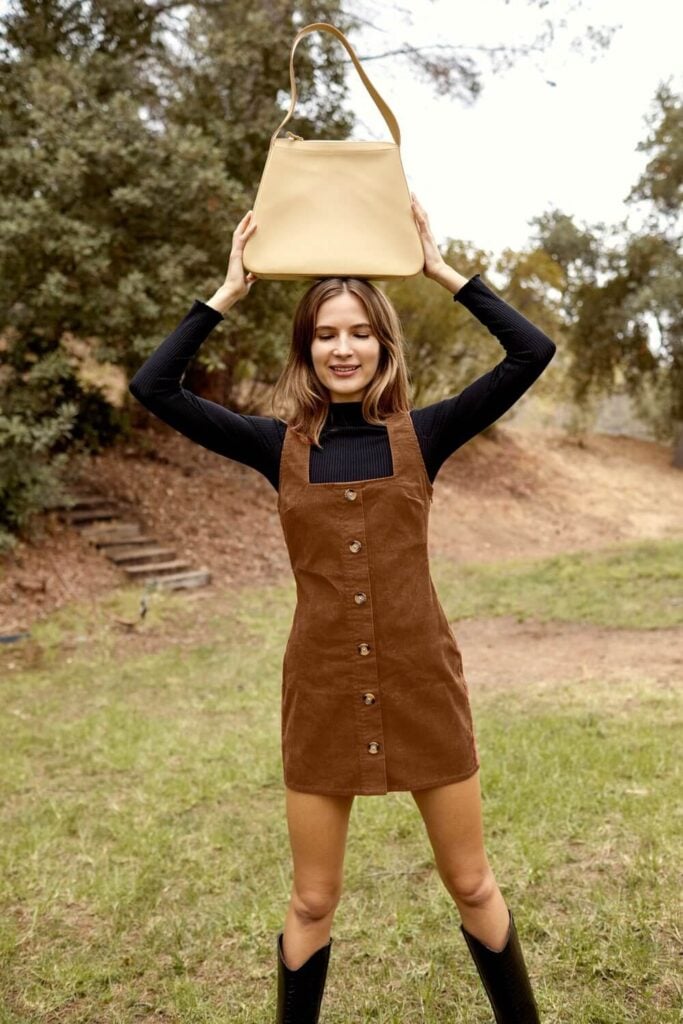
3. Organic Basics
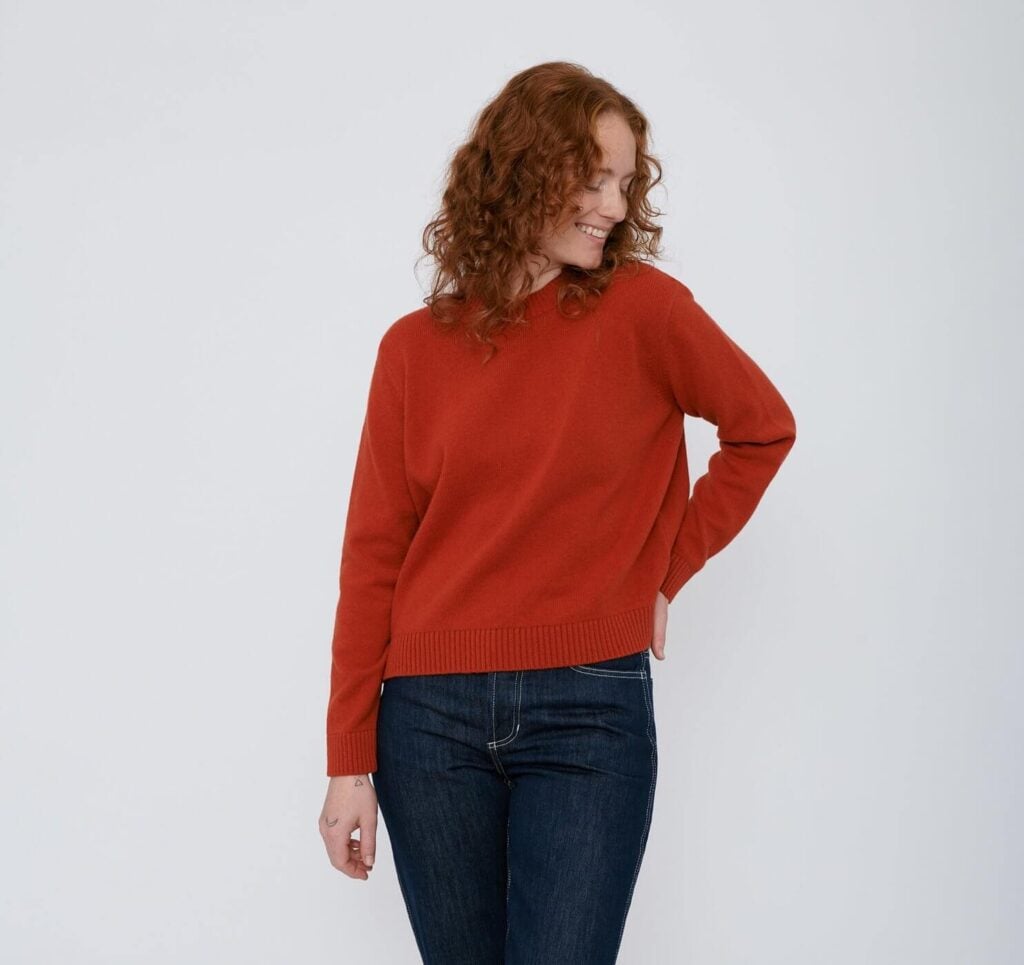
What they make: Minimalist, sustainable denim and basics including t-shirts and sweats
Sustainability: Certified B Corporation creating ethical and eco-friendly clothing.
Organic Basics is a certified B Corp that creates a variety of ethical and sustainable clothing, including circular denim jeans and jackets.
This ethical brand is honest about the factories and suppliers it partners with, publishing a transparent list on its website.
The brand use low-impact and natural materials such as GOTS Certified Organic Cotton, recycled wool, and TENCEL.
We’ve personally tested products from Organic Basics, and we are impressed with the quality and style.
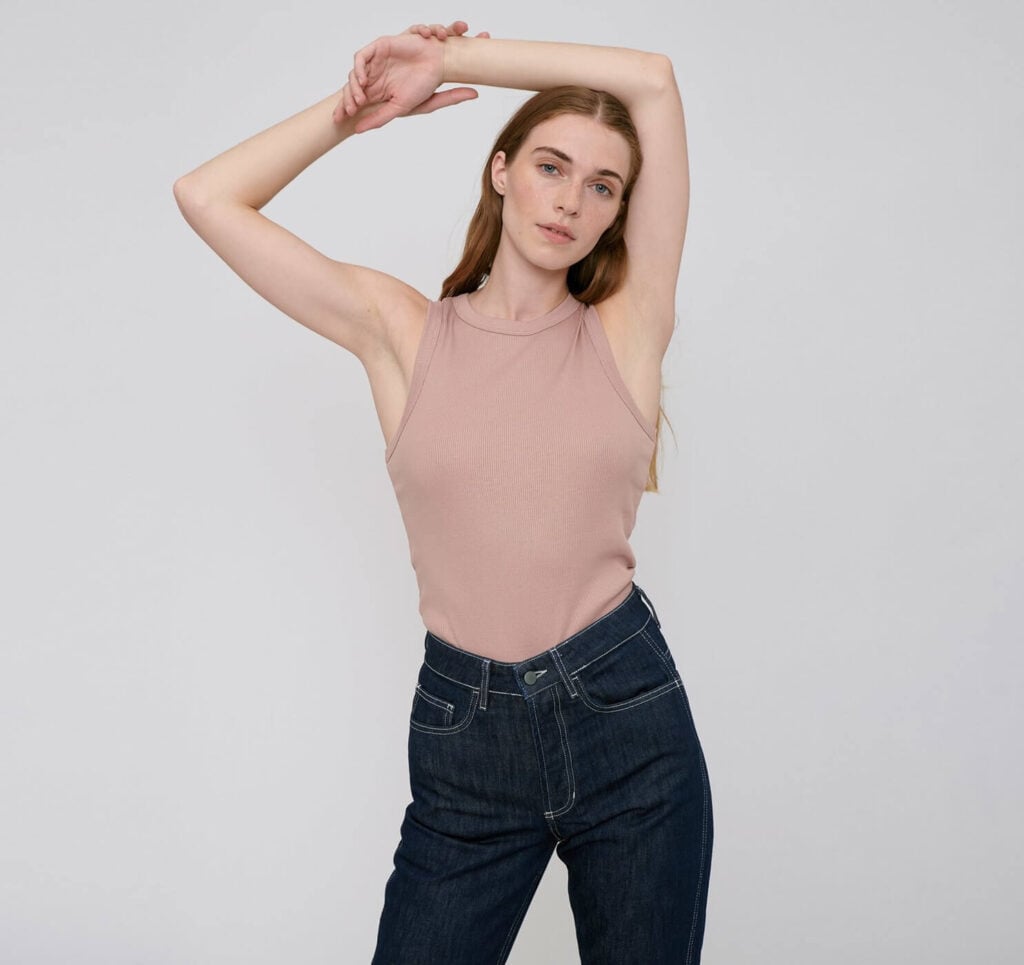
4. Frank and Oak
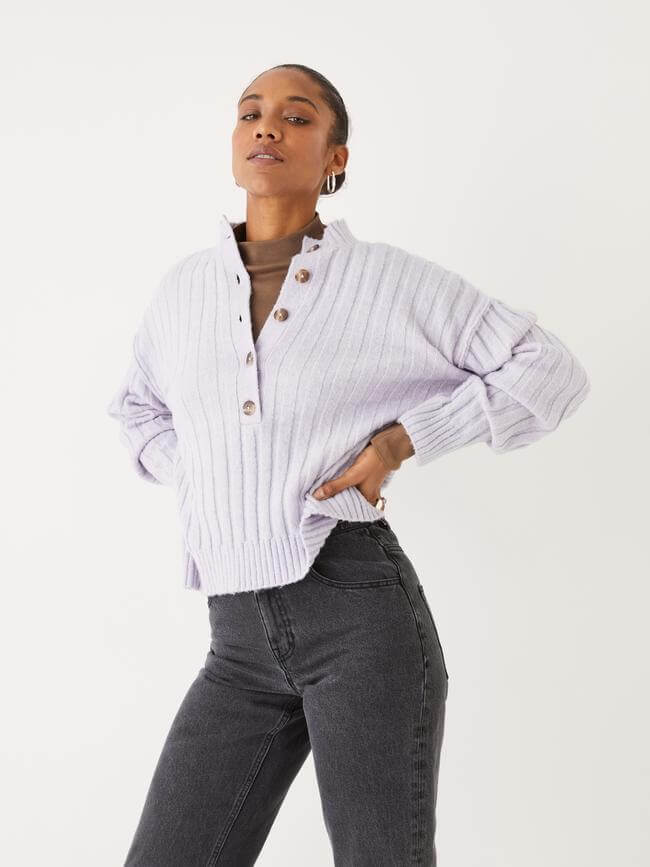
What they make: Stylish, sustainable dresses, sweaters, and coats.
Sustainability: Certified B Corporation, creating on-trend collections from eco-friendly fabrics and recycled materials.
Frank and Oak is a Canadian-based sustainable clothing brand, creating practical and on-trend clothing for men and women, with 75% of the brand’s products are produced with sustainable processes and eco-friendly materials.
Frank and Oak use some pretty cool recycled materials; they have even found a way to recycle oyster shells from the food industry to produce its Seawool collection. Other eco-friendly fabrics the brand uses include hemp, recycled cotton, recycled polyester, and cruelty-free merino wool.
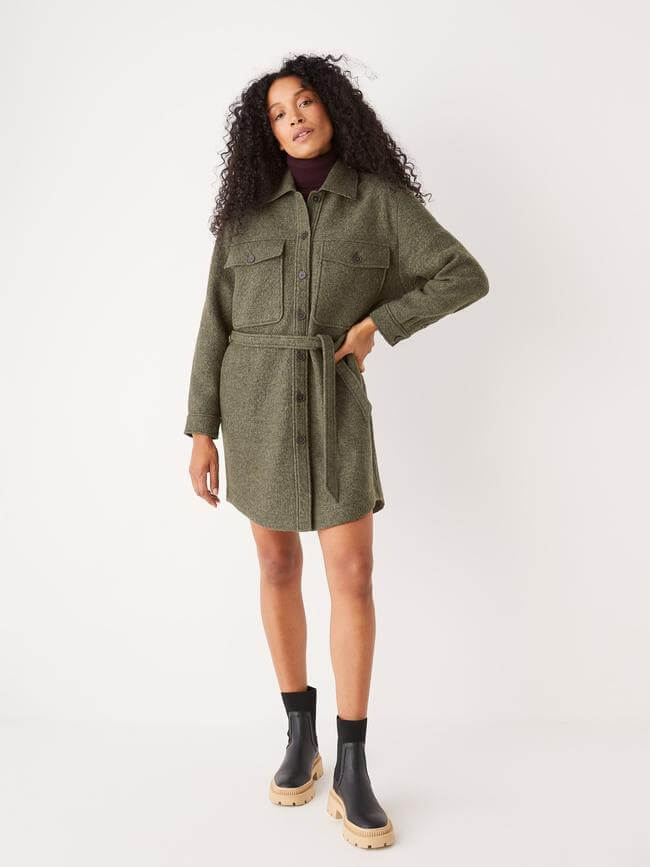
Wrapping Up: Is Free People Ethical
We hope you’re enjoyed the article, and have the information to make your own informed decision on Free People.
There are some great ethical, slow fashion alternatives out there creating gorgeous collections ethically and sustainably, meaning you can shop knowing you’re doing good for both people and the planet.
If you want to discover more than the recommendations listed here, check out this guide on 17 affordable and sustainable brands. Plus We’ve got loads more brand ratings including Madewell, Uniqlo, Zaful and more.
Thanks for reading.
